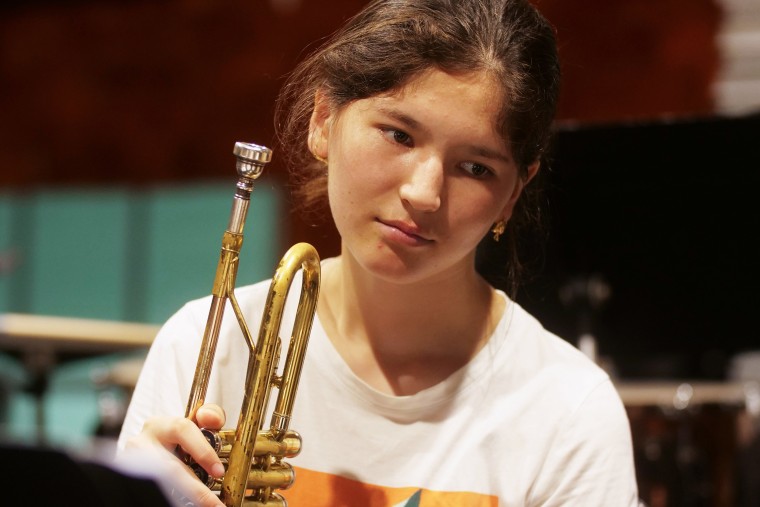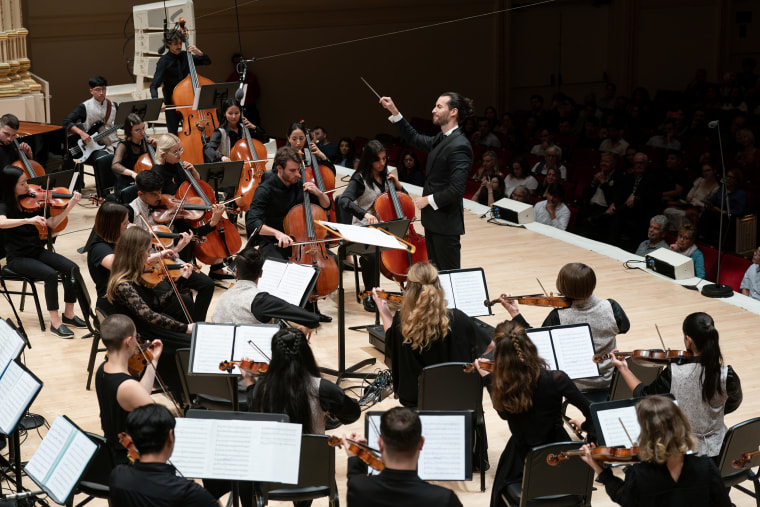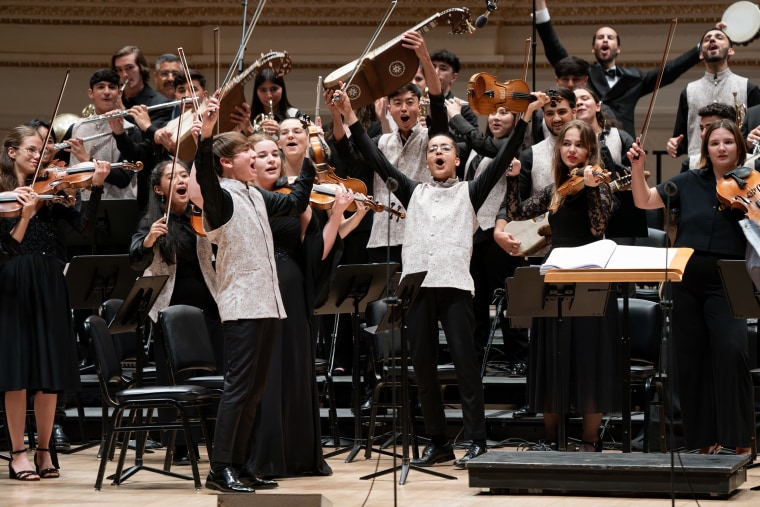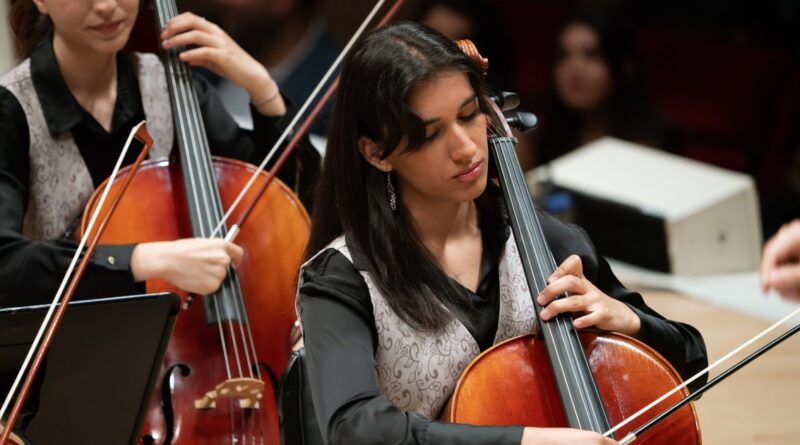How an orchestra defied the Taliban to carry on playing
Established in 2010 under a fragile U.S.-backed Afghan government in Kabul, ANIM was Afghanistan’s first and only school of its kind.
Unlike schools during the first Taliban regime, where students were strictly segregated, ANIM allowed boys and girls to share classrooms and welcomed children from all walks of life. The institute embraced Afghan culture and Western music alike.
“It was a whole world for us,” said Zohra, speaking alongside Farida in Portugal, adding that it made them “dream bigger and higher.”
The girls discovered their instruments — the trumpet for Zohra and the violin for Farida — and their passion.
And the school thrived for a decade, sending orchestras and ensembles on tours around the world and playing to packed venues.
But their success drew the ire of the Taliban, which plotted multiple attacks on the institute and those associated with it and carried out a deadly suicide bombing at a Kabul performance in 2014.
The blast killed two people and severely injured the school’s founder and director, Ahmad Sarmast, who suffered shrapnel injuries to the head and temporary damage to his hearing. He said it took him months to recover.
“We all, one day, will be gone. I strongly believe it’s better to die while you’re standing rather [than] to be on your knees,” Sarmast told NBC News in a May 2021 interview, before the Taliban takeover. “There’s a fight between dark forces and progressive forces of this nation.”

In less than four months, his worst fears would be realized. Believing the school and its students would be targeted, Sarmast said he fired off appeals to government officials in the United States, Germany, the United Kingdom, Switzerland and Portugal asking them for sanctuary.
Fearing a gradual evacuation would endanger any students and staff left behind, he insisted they leave Afghanistan together, united as a school.
“It was everyone who could face the consequences,” Sarmast said in an interview earlier this year. “So, for me, it was important to save everyone or no one.”
While many of the appeals proved unsuccessful, Sarmast remained undeterred. His persistence paid off.
“Portugal was the only government around the world that positively and promptly responded,” he said, “and offered a group-asylum for 284 people … the entire school community.”
For Farida and Zohra, the chance to leave would prove bittersweet. On the one hand, they were relieved to escape the Taliban’s wrath, but on the other, they were leaving their families behind.
Before she left, Zohra said her 63-year-old grandmother, Sabera Yawari, told her to stay positive. “Don’t worry, you can get out of this hell and go study and achieve your dreams,” she said her elder told her.
Escorted by a relative to Kabul’s main airport under the watchful eye of the Taliban, the pair smiled and laughed in nervous anticipation of the journey ahead while also experiencing the heartbreak of leaving their loved ones behind.
“We were happy and sad at the same time because we had to leave our family for a long time,” said Zohra. “We didn’t know if we were going to see them ever again.”
It took five flights to get all of the weary staff and students out of Afghanistan to Qatar, where they would remain for two months before finally traveling to Portugal.

Many were then placed in makeshift housing at a former military hospital in the city of Lisbon, before they found more permanent homes in Braga, a historic city in northeastern Portugal.
“We all went through a big culture shock,” said Sarmast. “Everything was different.”
Though in exile, the orchestra has nonetheless picked up where it left off at Braga’s Conservatory of Music, a modest building that has become an unlikely refuge for Afghanistan’s rich musical traditions.
“We’ve been very fortunate to be out of Afghanistan and to get an opportunity for our students to dream once again, to hope once again,” Sarmast added. “But again, it’s always painful, it’s always hard when you’re away from your roots.”
Still, he said, the orchestra has set high expectations for itself. Less than three years after it left Afghanistan, the group is playing prestigious concert venues again, including two packed U.S. performances in August: one at the Kennedy Center in Washington, D.C., and another at one of music’s most hallowed grounds, New York City’s Carnegie Hall.

“Each note that we play today, it’s a note of protest and it’s the voices of millions of the Afghan who have been forced into silence,” Sarmast said.
More than three years after their move, Farida and Zohra stay in contact with their families using patchy video calls.
Much goes unsaid, but Farida said she knew her family was facing mounting struggles. They rarely leave the house for fear of the Taliban, she explained, and a crumbling economy means they can only afford to eat meat once a month.
Her 11-year-old sister, Shanaz, will likely lose out the most. Now in the fifth grade, Shanaz hopes to be a doctor one day, but under Taliban rule she will only be allowed one more year of education.
But she and Zohra nonetheless hope to be able to return home one day.
In the meantime, they are both seeking solace in music.
“When I’m practicing or playing the trumpet, I feel like it’s going to be OK,” Zohra said. “My family will come, Taliban will be gone, and it just feels good.”
“It’s also making me more strong,” Farida added. “It gives me something like positive energy.”




